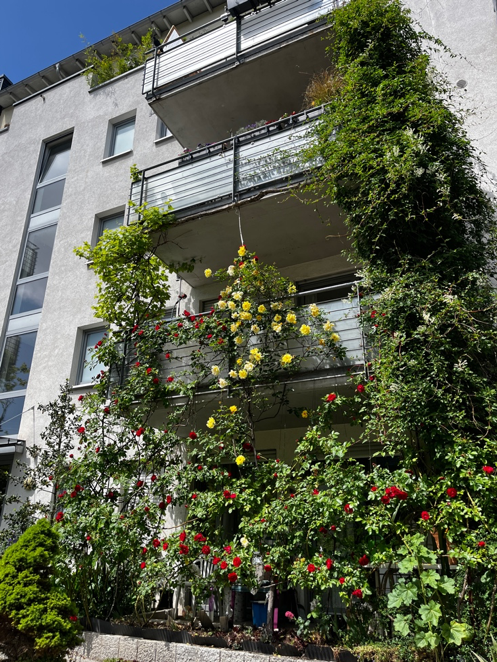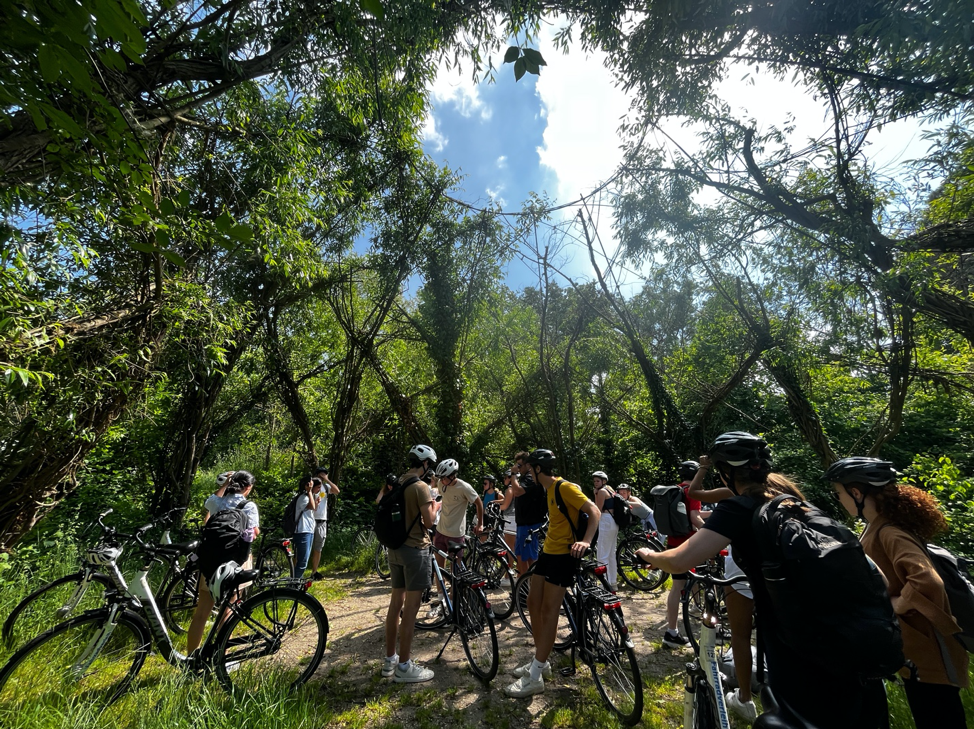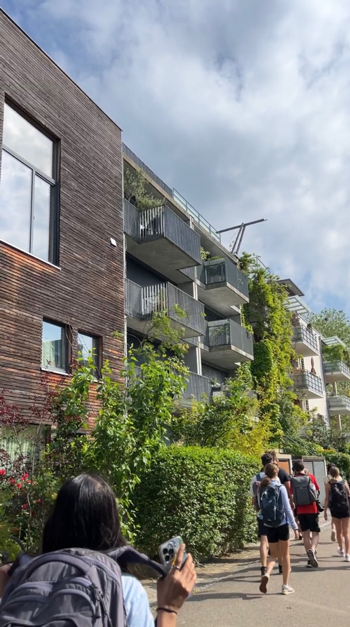Rieselfeld and Vauban: Bike Tour of Europe’s Most Sustainable City
June 5, 2023
By embarking on a cycling tour throughout the city of Freiburg, students in the Burch Sustainability Research Field Seminar were able to immerse themselves in the mobility and residential aspects of living in Europe’s most sustainable city.
We rose at nine in the morning to meet our guide from Innovation Academy, Steffen, who was elated to give us a cycling tour of the city of Freiburg and its two most popular suburban districts – Rieselfeld and Vauban. Cycling is the most popular mode of travel in Freiburg, and what better way to understand the city’s infrastructure than to experience it?
After receiving our bikes from the city’s bike rental station underneath the main train station, we rode to Rieselfeld, an old sewage district turned into a suburban neighborhood. There, in Riesefeld, Steffen embarked us on a scavenger hunt around the residential area, with the goal of bringing key urban planning concepts to our attention.
In Rieselfeld, many of the buildings were constructed on city-owned land. The city of Freiburg developed most of the infrastructure of the suburb, including schools and street layouts. Plots of land were sold to private developers that developed in specific sub-sections of the suburb. However, no one block was sold to one developer, thus allowing for one block to have multiple apartment buildings and mixed-use development. Some plots were developed as collectively planned buildings, buildings that were planned by members of the community that intended to live in the neighborhood. Streets in Rieselfeld are intentionally very accessible for mobility, especially for those with a disability or wheelchair-bound individuals. The building shown above is one of the residential buildings located in Rieselfeld. As with much of the infrastructure in the suburb, the building incorporates green spaces and green walls into its design.
After we toured Rieselfeld, we biked to a nearby lake for a lunch break. After our break, we hopped back onto the biking road for a scenic, but grueling bike ride to our next suburban destination – Vauban. Before entering the main city street of Vauban, we passed through an allocated Green Space for the residential area. These allocated Green Spaces allow for the district of Vauban to bypass requirements for car parking spots in the city. Instead of constructing more parking decks, residents choose to pay a lower fee to maintain the potential parking deck site as green space in the district. Pictured above, our students rest at one of these Green Spaces for an explanation by our guide, Steffen.
We locked our bikes up near an ice cream shop in Vauban and began a tour around the neighborhood. We saw streets lined with green buildings, passive housing, and plenty of allocated green space for community parks. Much like Rieselfeld, many of the buildings in Vauban were repurposed and revived through collaborative planning by its residents. The result is a neighborhood with unique buildings harboring green balconies, a short walk to the tram station, and a lack of cars within the residential streets. Pictured below is a cluster of apartments showing off beautiful green landscaping across the side of the building.
After our final stop in Vauban, we hopped back on our bikes and followed Steffen back to the bike rental station. It was interesting to experience the inner-city biking infrastructure. While traveling in a single file line, we got to see how quickly local cyclists travel and get a taste of the cyclist traffic laws in the city. Combining the bike tour with tours of retrofitted, sustainable neighborhoods really solidified Freiburg’s reputation as a sustainable city. The mobility and accessibility of its districts by cycling helps reduce car dependence and the density created in suburban districts helps foster a sense of community no matter where you go in the city.
About the Author
Sabrina Krupenko, Bachelor of Science in Environmental Science with a Chemistry Minor, Class of 2025, Connect on LinkedIn


